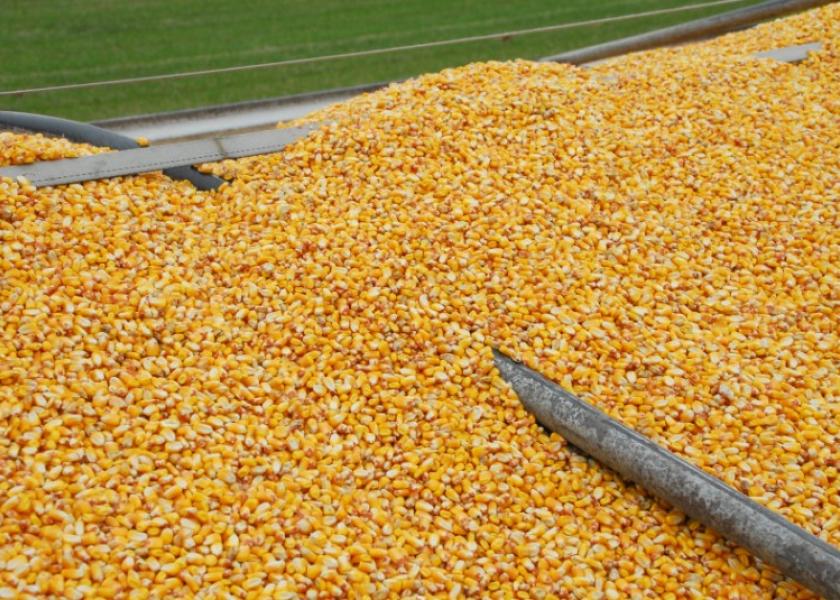Corn, Soybeans and Wheat Prices Plummet Thursday, Weather is Only Part of the Reason Why

Last week, hot and dry weather fueled commodity markets. JP Morgan also came out with a projection that showed a high upside for ag commodities. This week, the forecasts have changed and growing recession fears are spurring market speculators to sell.
A ridge of high pressure remains in the U.S., but as it shifts, it’s also creating a forecast that remains fluid. A more favorable forecast was released this week, and that sparked selling with front-month soybeans down nearly 60¢ Thursday. Corn traded down 21¢.
“We saw a shift in the weather model,” says Joe Vaclavik of Standard Grain. “NOAA's Global Forecast System (GFS) introduced quite a bit more rain for the western two-thirds of the Corn Belt, which includes Iowa, Minnesota, Nebraska and the Dakotas. But, a lot of the eastern Corn Belt is still dry through that timeframe based on what I've seen in the weather models, at least for Illinois, Indiana, Ohio and places farther south.”
Vaclavik says the weather wasn’t the only thing that spooked the markets. He also thinks the recession risk was also a major factor in the sell-off this week.
“Commodity markets do not perform well during recessions, whether it's crude oil, corn, soybeans,” says Vaclavik. “If you're a large speculator sitting on a big long position in the grain markets or in the crude oil market, and you're convinced that we're headed toward a recession, you may think twice about that position. You may be selling out of that long position. I think that's an additional negative factor here on Thursday.”
Talk of a recession isn't new, but with Central banks also raising rates in an effort to curb inflation this week, it seems the recession concerns are becoming more of a reality.
Growing Season Far From Over
The sell-off in the third week of June comes just ahead of USDA's June acreage report, which Vaclavik says always produces surprises. USDA will also release an updated look at grain stocks in the Quarterly Grain Stocks report on June 30.
Those reports coincide with the key pollination time for the majority of the Corn Belt. With so much news and growing season left, Mike North of ever.ag says the break in the market this week could be an opportunity for feed users.
“Anytime you see a sizable break like this, you have to ask the question, ‘Is it fully justified?’ As we head towards July, the answer to that question, fundamentally, right now is no,” says North. “You could make some technical cases that charts have broken down, etc., but the reality of it is we're not through the growing season for corn, we're not through the growing season for soybeans, weather forecasts can change, models can change. And they can change on a dime.”







